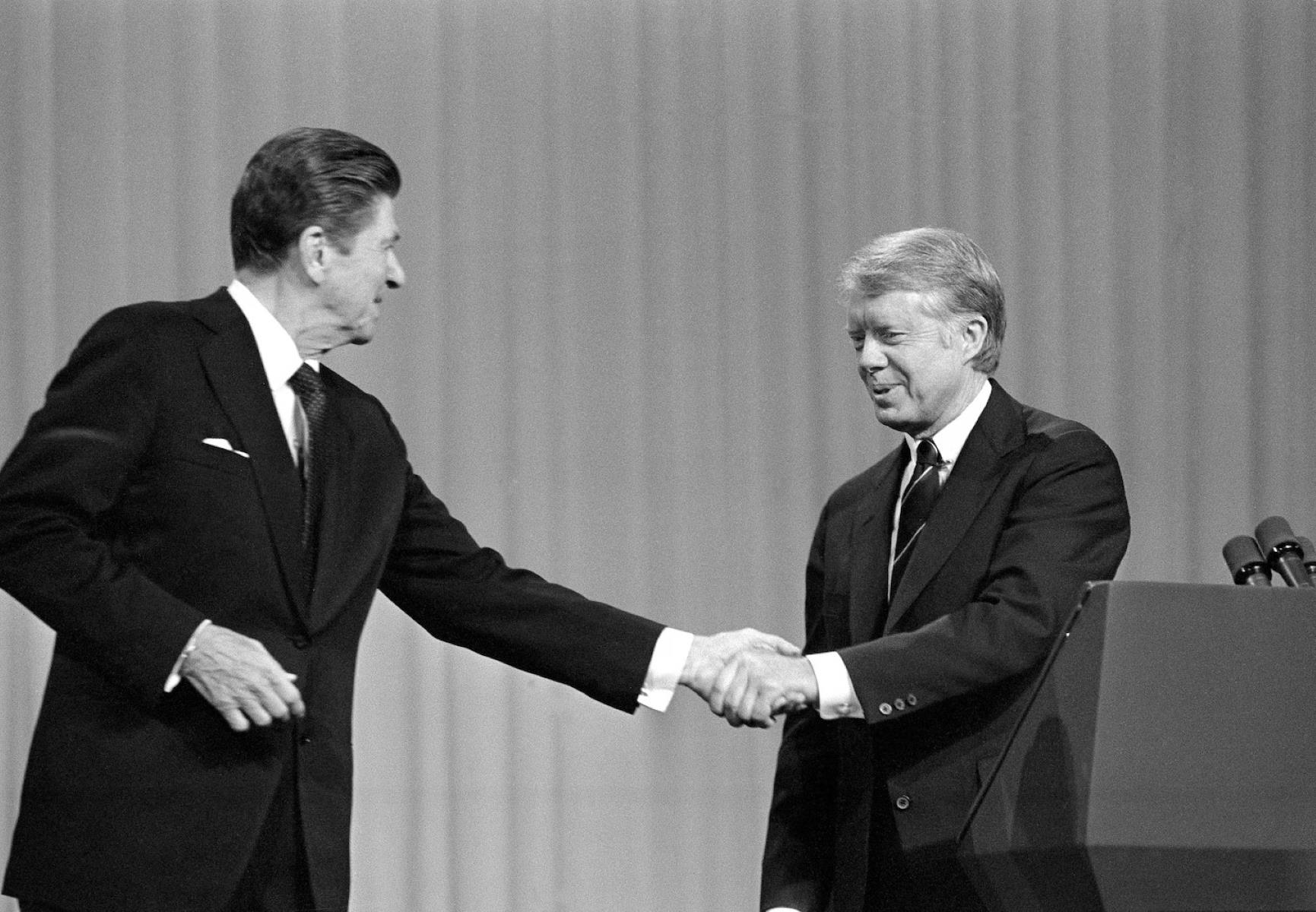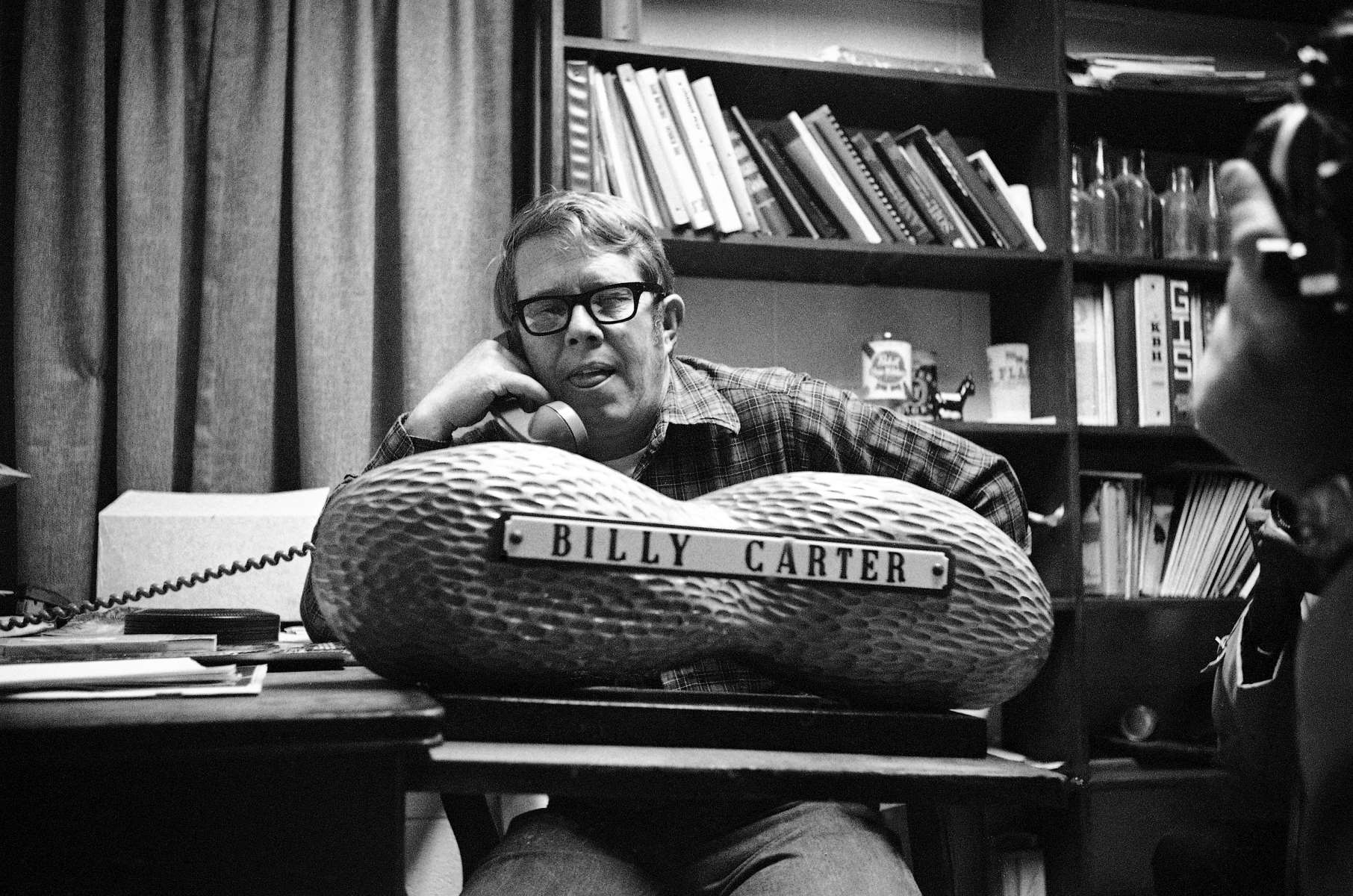
What was Debategate? Debategate, also known as the 1988 Presidential Debate Scandal, rocked the political world during the 1988 U.S. presidential election. This scandal involved allegations against George H.W. Bush's campaign, accusing it of using misleading tactics during a televised debate with Michael Dukakis. The controversy mainly revolved around the infamous "Willie Horton ad," which painted Dukakis as soft on crime. This ad had a significant impact on public opinion and voter behavior, raising ethical questions about negative campaigning. The incident highlighted the importance of fairness and transparency in political debates, leaving a lasting legacy in American politics.
The 1988 Presidential Debate
Debategate, also known as the 1988 Presidential Debate Scandal, was a pivotal moment in American political history. It revolved around the second debate between Republican candidate George H.W. Bush and Democratic candidate Michael Dukakis. Let's dive into the details.
-
The Debate: The controversy centered around the October 13, 1988, presidential debate held at Wake Forest University in Winston-Salem, North Carolina. This was the second of three debates in the 1988 presidential campaign.
-
Moderator: The debate was moderated by Jim Lehrer, a well-respected journalist known for his fairness and impartiality. Lehrer had a reputation for maintaining a neutral stance during debates.
Allegations and the "Willie Horton Ad"
The Bush campaign faced serious allegations of misconduct, particularly concerning a controversial advertisement. This section explores the core of the scandal.
-
Allegations: The Bush campaign was accused of orchestrating a smear campaign against Dukakis. The most notable incident involved a misleading advertisement that linked Dukakis to the 1989 Massachusetts prison furlough program, which had been criticized for releasing violent offenders.
-
The Ad: The advertisement, known as the "Willie Horton ad," featured a convicted felon named Willie Horton, who had committed a series of violent crimes while on furlough from prison. The ad implied that Dukakis was responsible for Horton's release and subsequent crimes.
-
Misleading Information: Critics argued that the ad was misleading because it did not provide full context about the furlough program or Dukakis's role in it. The ad also selectively presented information to create a negative impression of Dukakis.
Impact on the Campaign
The "Willie Horton ad" had a significant impact on the 1988 presidential campaign. This section delves into how it influenced voter behavior and media coverage.
-
Impact on the Campaign: The "Willie Horton ad" had a significant impact on the campaign. It was widely criticized for its negative and misleading content, but it also seemed to resonate with some voters, particularly in swing states.
-
Media Coverage: The media played a crucial role in covering the debate and subsequent controversy. Many news outlets criticized the Bush campaign for its tactics, but others felt that the ad was a legitimate critique of Dukakis's record.
-
Public Reaction: The public reaction to the ad was mixed. Some people felt that it was a fair critique of Dukakis's policies, while others saw it as a vicious attack designed to win votes by any means necessary.
Debate Moderation and Responses
Jim Lehrer, the debate moderator, tried to address the controversy during the debate. This section covers how both candidates responded to the allegations.
-
Debate Moderation: During the debate, Lehrer attempted to address the issue by asking both candidates about their positions on crime and furlough policies. However, the damage had already been done, and many viewers had already formed opinions based on the misleading advertisement.
-
Dukakis's Response: Dukakis responded to the allegations by explaining his role in the furlough program and emphasizing that he had not been responsible for Horton's release. However, his response may not have been as effective as it could have been due to the widespread dissemination of the misleading information.
Bush Campaign Strategy
The Bush campaign had a clear strategy to portray Dukakis negatively. This section explores their tactics and the ethical concerns raised.
-
Bush Campaign Strategy: The Bush campaign's strategy was to portray Dukakis as soft on crime and out of touch with mainstream American values. The "Willie Horton ad" was part of a broader effort to create a narrative that Dukakis was not fit to be president.
-
Ethical Concerns: The use of the "Willie Horton ad" raised ethical concerns about the role of negative campaigning in politics. Many argued that such tactics undermined the integrity of the democratic process and could lead to a culture of personal attacks rather than policy debates.
Legal and Historical Context
Debategate didn't result in immediate legal consequences but had a lasting impact on political advertising and campaign finance laws.
-
Legal Action: There were no immediate legal consequences for the Bush campaign due to the ad. However, the incident highlighted ongoing debates about campaign finance laws and regulations governing political advertising.
-
Historical Context: Debategate occurred during a time when negative campaigning was becoming increasingly prevalent in American politics. The incident contributed to ongoing discussions about the ethics of political advertising and its impact on public discourse.
Media Accountability and Public Perception
The media's role and the public's perception of the candidates were crucial in shaping the outcome of the scandal.
-
Media Accountability: The media's handling of Debategate also came under scrutiny. Some argued that news outlets should have done more to fact-check and contextualize the information presented in the "Willie Horton ad." Others felt that the media was too quick to criticize Dukakis without fully understanding his policies.
-
Public Perception: The controversy surrounding Debategate influenced public perception of both candidates. While some voters saw Dukakis as weak on crime, others viewed him as unfairly targeted by the Bush campaign.
-
Impact on Voter Behavior: Research suggests that the "Willie Horton ad" may have influenced voter behavior, particularly among swing voters who were undecided or leaning towards Dukakis before seeing the ad.
Legacy and Reforms
Debategate left a lasting legacy in American politics, prompting calls for reforms and regulations in political advertising.
-
Legacy of Debategate: Debategate has left a lasting legacy in American politics. It has been cited as an example of how negative campaigning can shape public opinion and influence election outcomes.
-
Reforms and Regulations: In response to Debategate and other instances of negative campaigning, there have been calls for reforms and regulations governing political advertising. Some argue that stricter regulations could help prevent similar incidents in the future.
-
Continued Debate: The debate over negative campaigning continues to this day. While some argue that such tactics are necessary to win elections, others believe they undermine democratic values and contribute to a toxic political environment.
The Lasting Impact of Debategate
Debategate, the 1988 Presidential Debate Scandal, left a significant mark on American politics. The "Willie Horton ad" became a symbol of negative campaigning, raising ethical concerns about fairness and transparency. This scandal showed how misleading information can shape public opinion and influence elections. The Bush campaign's tactics, while effective, sparked debates about the integrity of political advertising. Media coverage played a crucial role, with some outlets criticized for not fact-checking thoroughly. Public reaction was mixed, reflecting the ad's polarizing nature. Debategate highlighted the need for reforms in campaign finance laws and political advertising regulations. Its legacy continues to influence discussions on the ethics of negative campaigning. This event serves as a reminder of the importance of honesty and integrity in political discourse, shaping how future campaigns are conducted and perceived.
Was this page helpful?
Our commitment to delivering trustworthy and engaging content is at the heart of what we do. Each fact on our site is contributed by real users like you, bringing a wealth of diverse insights and information. To ensure the highest standards of accuracy and reliability, our dedicated editors meticulously review each submission. This process guarantees that the facts we share are not only fascinating but also credible. Trust in our commitment to quality and authenticity as you explore and learn with us.


